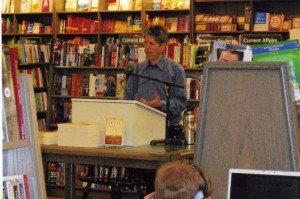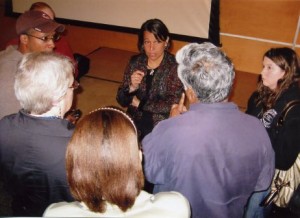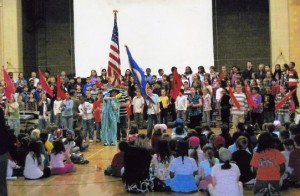#189 – Dick Bernard: Goldman-Sachs et al, Gaming the System
Tuesday, April 27, Goldman-Sachs testified at the U.S. Senate about their part in the mortgage meltdown. The media is awash with details about this. The long and short is that Goldman-Sachs defense appears to be that they did nothing wrong, they were simply following the rules of the game. They probably have a strong case. On the other hand, I suppose the defendants at Nuremburg, My Lai, Abu Ghraib also thought they had a strong case…just following orders. For Goldman-Sachs and the others, they were simply loyal and productive soldiers in the financial marketplace.
It’s odd how this issue gets “spun”: This morning at coffee four old guys (my age) took the table next to me. One of them I know reasonably well, the others I see occasionally. Their first topic was yesterday’s hearing where one Senator or another swore several times, using the “s–tty” word, and wasn’t that terrible? Of course, this profanity is among the most common and inoffensive of the swear words, known and used by almost everyone over the age of 10 these days, certainly by the guys at that table, so there isn’t much of a moral dimension to it.
Not mentioned was that all the Senators were doing was repeating the precise language of a Goldman-Sachs internal memo commenting on the quality (“s–tty”) of the mortgage investments they were selling, and simultaneously betting on the failure of those same investments. They couldn’t lose.
And, of course, the rules they had followed were the very same rules that they had lobbied successfully to pass through Congress in the high-flying days of rampant deregulation in the 1990s and early 2000s. Not mentioned was that these catastrophic rules legalized financial instruments that virtually nobody, including company executives, understood EXCEPT to the extent that their use could possibly make the company (and others) a ton of money.
If you can make assault with a deadly weapon legal, and resulting death a misdemeanor, so be it. That’s how the game is played. Those with the Money and the Power use their money and power to enhance their own status; in the competition of American life, the junior high school football B-squad (“we the people”) are up against the current Super Bowl champions. The outcome is never in doubt. The Rubes lose.
The table conversation went on: the illegals in Arizona – Obamas fault; how about some environmentalists swimming out to that horrible oil slick in the Gulf of Mexico and protesting there? It was all light banter, from some otherwise upstanding citizens of an upscale suburb in a prosperous metropolitan area. There was not a single clue, at that table, of any responsibility. Everything was about rights.
“We, the people” vastly outnumber those slick Goldman-Sachs zillionaires who sat at the Hearing Table in Washington, and that is something of a problem for the Powerful.
There are antidotes to this, liberally used, and used very effectively: make Money the mother’s milk of getting elected; make sure the rules level the playing field to the extent that corporations are people, citizens, just like the rest of us. Get the victims, like those four guys at the table next to me this morning, lobbying in behalf of Big Business and Free Enterprise and the goodness of obscene Individual Wealth. Most importantly, convince those who feel they are powerless that they truly have no power. “That’s just how it is.” This happens in countries with dictators, and it happens in the Third World, and it as assuredly happens here.
Back when the mortgage meltdown was becoming obvious – 2007 – I remember getting an e-mail from someone of my general station in life, living in a modest house, etc.
The thrust of the e-mail, probably from some talking points somewhere, was that the mortgage meltdown was the fault of the irresponsible poor people who bought houses they couldn’t afford. Nowhere was there mention of the alternate reality: that these same poor people were part of the engine making Wall Street richer and richer and richer, they were the “rubes”…and then everything collapsed. It was the rubes fault.
On and on we go. Where we stop, we all should now know…but denial is alive and very, very well.








